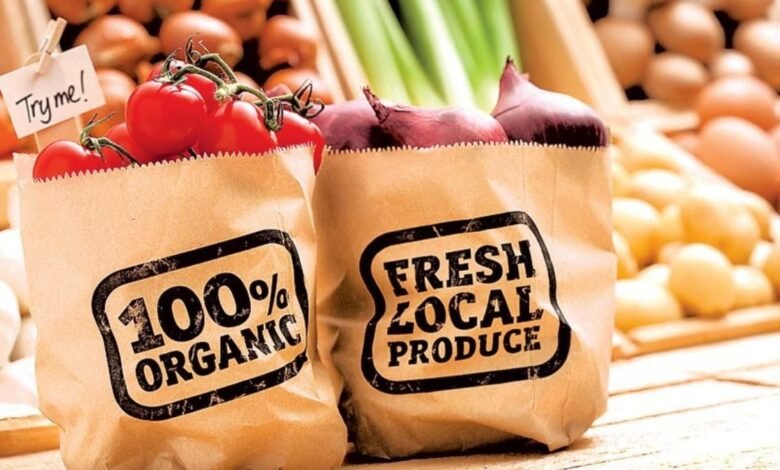The Importance of Local and Organic Foods

In recent years, the conversation around food production and consumption has shifted significantly. The emphasis on health, sustainability, and ethical sourcing has led many consumers to seek out local and organic foods. Understanding the importance of these food sources is crucial for not just personal well-being, but also for the health of our communities and the planet. This article explores the various dimensions of local and organic foods, highlighting their benefits, challenges, and overall significance in today’s world.
The Rise of Local and Organic Foods
Local and organic foods have gained immense popularity as people become more conscious of what they eat and where it comes from. The term “local food” typically refers to produce that is grown within a certain radius of where it is sold, often within a state or region. This proximity reduces the carbon footprint associated with transportation, contributing to environmental sustainability. Organic foods, on the other hand, are grown without the use of synthetic fertilizers, pesticides, or genetically modified organisms (GMOs). Together, these two categories of food represent a movement towards more responsible and sustainable eating habits.
The resurgence of farmer’s markets, community-supported agriculture (CSA), and local food co-ops reflects a growing trend among consumers who value the source of their food. These venues not only provide access to fresh produce but also foster a sense of community, allowing consumers to connect directly with the farmers who grow their food. This direct relationship cultivates trust and transparency, important factors in an age where food fraud and misinformation are prevalent.
Nutritional Benefits
One of the most compelling reasons to choose local and organic foods is their potential nutritional superiority. Studies have shown that local produce often contains higher levels of vitamins and minerals than conventionally grown options. This is primarily due to the shorter time between harvest and consumption, allowing the fruits and vegetables to retain more of their nutrients. Additionally, organic farming practices that avoid synthetic fertilizers and pesticides often result in more nutrient-dense crops.
Moreover, local and organic foods tend to be fresher, enhancing their flavor and overall appeal. Fresh produce not only tastes better but also encourages a healthier diet, making it easier for individuals to incorporate fruits and vegetables into their daily meals. This shift towards a more plant-based diet has been linked to numerous health benefits, including reduced risks of chronic diseases such as obesity, heart disease, and diabetes.
Environmental Impact
The environmental implications of local and organic foods cannot be overstated. Conventional farming methods often rely heavily on chemical fertilizers and pesticides, which can lead to soil degradation, water pollution, and loss of biodiversity. In contrast, organic farming emphasizes sustainability through crop rotation, composting, and other natural practices that enhance soil health and promote biodiversity.
By choosing local foods, consumers also reduce the carbon footprint associated with long-distance food transportation. The average meal in the United States travels over 1,500 miles from farm to plate, resulting in significant greenhouse gas emissions. In contrast, local foods, which are typically grown and consumed within a smaller geographic area, require far less transportation and, consequently, produce fewer emissions. This local focus not only benefits the environment but also supports local economies, keeping money circulating within communities and fostering job creation.
Economic Advantages
The local food movement has profound economic implications for communities. Supporting local farmers and producers helps to sustain local economies and create jobs. By purchasing directly from farmers, consumers can help maintain agricultural diversity and ensure that small-scale farms remain viable. In many cases, local farms also contribute to the creation of new businesses, such as food processing, distribution, and retail, thereby strengthening the local economy further.
Moreover, investing in local and organic foods can be seen as a form of community investment. Money spent on local foods tends to stay within the community, supporting local jobs and services. This contrasts with large, industrial food producers, where profits are often funneled out of the local economy. By prioritizing local and organic options, consumers play an active role in shaping the economic landscape of their communities.
Social and Cultural Significance
Local and organic foods also carry significant social and cultural implications. Food is an integral part of our identity, and the choices we make about what we eat can reflect our values and priorities. By supporting local farmers and producers, individuals engage in a form of activism that prioritizes ethical and sustainable practices. This engagement fosters a sense of community and shared responsibility, as consumers are more likely to invest in the welfare of their neighbors and local environments.
Additionally, local foods often come with a story—each piece of produce reflects the labor and care of the farmers who cultivated it. This connection to the land and the people who grow our food deepens our appreciation for what we consume and can enhance the overall dining experience. Engaging with local food systems encourages people to consider the broader implications of their dietary choices, fostering a culture of mindfulness around food consumption.
Challenges and Misconceptions
Despite the numerous benefits, there are challenges associated with local and organic foods. One significant hurdle is the perception that these foods are often more expensive than conventional options. While it is true that organic foods can come with a premium price tag, this cost reflects the more labor-intensive farming practices and the lack of government subsidies that conventional farms often receive. However, many consumers are willing to invest in their health and the environment, recognizing the long-term benefits of choosing organic and local options.
Another misconception is that local and organic foods are not accessible to everyone. While it is true that food deserts exist—areas where access to fresh, healthy food is limited—many organizations and initiatives are working to bridge this gap. Community gardens, urban farms, and mobile markets are just a few examples of efforts aimed at increasing access to local and organic foods in underserved areas. Education and awareness are essential in overcoming these barriers, as more people become informed about the importance and availability of local and organic options.
The Future of Local and Organic Foods
Looking ahead, the future of local and organic foods appears promising. As more consumers demand transparency and sustainability in their food choices, producers will likely adapt to meet these preferences. Innovations in technology, such as vertical farming and hydroponics, can further enhance local food production, making it possible to grow fresh produce in urban environments.
Policy changes also play a critical role in supporting local and organic food systems. Advocacy for fair pricing, better access to land for small farmers, and investments in community-based food programs can help create an environment where local and organic foods thrive. The growing awareness around climate change and its impact on food systems will undoubtedly continue to push consumers toward more sustainable choices.
Conclusion
The importance of local and organic foods extends beyond personal health; it encompasses environmental sustainability, economic resilience, and social responsibility. As consumers become increasingly aware of the impact of their food choices, the movement toward local and organic foods continues to gain momentum. By prioritizing these options, individuals not only support their health and well-being but also contribute to the well-being of their communities and the planet. Embracing local and organic foods is more than a dietary choice; it is a commitment to fostering a sustainable future for all.



